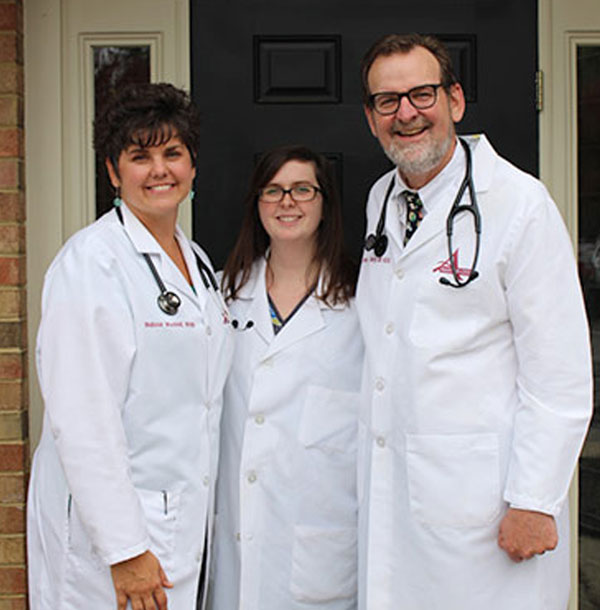What is gonorrhea?
Gonorrhea is an infectious disease that is sexually transmitted. Popular names for gonorrhea are clap, drip, dose, and strain. It can affect the cervix, uterus, fallopian tubes, penis, rectum, mouth/throat, joints and eyes.
How does it occur?
Gonorrhea is caused by bacteria. The infection is passed from person to person during sex. It is very contagious. The bacteria can enter the body through any body opening, such as the mouth, vagina, penis, or rectum.
In women, the infection usually starts in the cervix. The cervix is the opening of the uterus inside the vagina. The bacteria may infect the throat or rectum after oral or anal sex.
A baby can be infected during childbirth if the mother has gonorrhea. When the baby passes through the birth canal, the bacteria can get into and infect the baby’s eyes.

What are the symptoms?
Many women infected with gonorrhea have no symptoms. If symptoms occur, they appear 2 to 10 days after exposure to the disease. Symptoms of gonorrhea include:
- thick, creamy, yellow vaginal discharge or from penis
- burning or pain when you urinate
- rectal discomfort and discharge (sometimes)
- bleeding or spotting between periods
- menstrual periods that are heavier than usual
- abdominal pain
- pain during sex (sometimes)
- fever
- joint pain
- rash, especially on palms
- mild sore throat (sometimes)
How is it diagnosed?
The most accurate way of testing for this bacteria is through a DNA probe. This consists of a special cotton swab that is placed in the cervix, throat, rectum or penis and sent off to the lab. If the DNA of the bacteria is found, the test is positive and the bacteria is present. Often this DNA probe checks for both chlamydia and gonorrhea.
What is the treatment?
Gonorrhea is treated with antibiotic medicine, taken by mouth or given as a shot. Many people with gonorrhea also have chlamydia (another sexually transmitted disease). Because of this, you may be given more than one drug to treat both diseases. Your sexual partner or partners should also have treatment even if they have no symptoms.
What are the possible complications from gonorrhea?
- gonococcal eye infection. This may cause blindness in children.
- blood poisoning
- infectious arthritis (infection of joints)
- pelvic inflammatory disease (PID)
- endocarditis (infection around the heart)
- sexual impotence in men, if untreated
- ectopic (tubal) pregnancy
- infertility in women
How long will the effects last?
If only the cervix is infected, proper treatment should clear up the infection in about 10 days. The test needs to be repeated in 3 weeks to ensure that the infection has cleared completely.
The effects of the disease depend on:
- how long you have had gonorrhea
- how much the infection has spread
- if you have had gonorrhea before.
- If not treated, gonorrhea in women can spread through the uterus to the fallopian tubes and ovaries, causing pelvic inflammatory disease (PID). PID can cause infertility, as well as increase the risk of a tubal pregnancy (a pregnancy outside the uterus). Further complications of untreated gonorrhea include spread of infection into the bloodstream and to other parts of the body. If PID occurs, you may need to be hospitalized and given several antibiotics through the IV directly into the vein.
How can I take care of myself?
Take all of the medication for as long as it is prescribed, even if your symptoms are gone before you have finished taking it.
Tell everyone with whom you have had sex in the last 3 months about your infection. They must also be treated, even if they have no symptoms.
Do not have sex before both you and your partner have finished all the medicine and you have had a negative test.
Follow your provider’s instructions for follow-up visits and tests. Your provider will need to make sure that the infection is gone.
Make sure you are tested for all other STD&’s as well.
Call the office right away if:
- You develop severe abdominal pain.
- You vomit and cannot keep the medicine down.
- You develop a fever over 100°F (37.8°C).
- You feel you are getting sicker instead of better.
How can I help prevent gonorrhea?
- Make sure you tell your sexual partner(s) that they have been exposed to gonorrhea.
- Reduce the risk of infection by always using latex or polyurethane condoms during foreplay and sexual intercourse.
- Have just 1 sexual partner who is not sexually active with anyone else. Make sure your partner has been tested for gonorrhea and other sexually transmitted diseases.
- Even if you don’t have symptoms but have had unprotected sex (without a condom), see your health care provider to be checked for sexually transmitted diseases.

